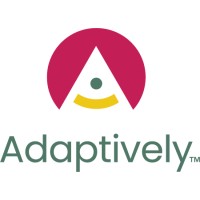Setting Up for Summer: Considerations for Parents
Summer break is just around the corner for students. While every student is looking forward to decompressing and relaxing, especially after this unprecedented last school year, two months is a long time without structured classroom learning activities. It is well known amongst educators that the summer break can result in students’ regression in math and language arts, but there are easy ways parents can keep children engaged in learning, while still giving them plenty of time for fun in the sun and time with friends.
- Have your child make a reading list of 5-10 books. Staying plugged into reading is one sure way to keep vocabulary and reading comprehension sharp. Reading also supports oral communication skills which are critical across our daily lives. Young readers, as they often must read what is assigned, may miss discovering the joy of reading. By allowing them to make their own lists on a visit to the local library or bookstore, they become empowered to select material of their interests and explore particular genres deeper than school reading time may permit.
- Set up a dedicated arts and crafts area in your home. Find a desk or other small space where paper, scissors, colored pencils, markers, gluesticks, and stickers can be abundantly available. Even a bin where materials are all contained and can be found easily is a way to accommodate creative materials in smaller spaces. Children of all ages can benefit from access to creative materials to develop their curiosity, exploration, and experimentation.
- Find family volunteer events or create your own volunteer days. Much of our learning happens from active experiences and the observations we make within them. Children can help community causes from park and beach cleanups to spending time with rescue animals to collecting books or school supplies for underprivileged students. Developing community mindfulness through volunteerism allows students to understand the value of citizenship and to open their understanding of the world around them.
- Set up time for conversation and game play. It sounds very simple, but busy families, especially during the school year may engage more in “on the run” talk than in connected communication. Having more time in the summer means there is more time for family sit-down dinners and game nights to encourage oral dialogue. Well-developed oral language skills are directly tied to strong reading and writing skills. So, set up a game board or set the table and take advantage of the slower summer pace to spend time together and engage in communication.
- Find dedicated time for learning enrichment. Many community colleges, museums, and other organizations offer weekly camps or summer-long activities. Adaptively Education understands that many students have had a less than ideal school year, and that some students need help this summer to catch up skills while others can benefit from enrichment to stay primed for the next school year. Students can level up and have fun while participating in our COVID Catch-Up Accelerator Program. Our programs are online, live, and offer convenient learning opportunities for students 1st through 8th grades. They are powered by our proven curriculum; taught by caring teachers, and backed with interactive games to engage math and English learning.
Summer slide is a real problem that can happen in the time off from school, but you can encourage your student in simple ways to stay connected to experiential and academic learning. They can have fun while learning, and both you and your student can feel confident about reentering school in the fall.

